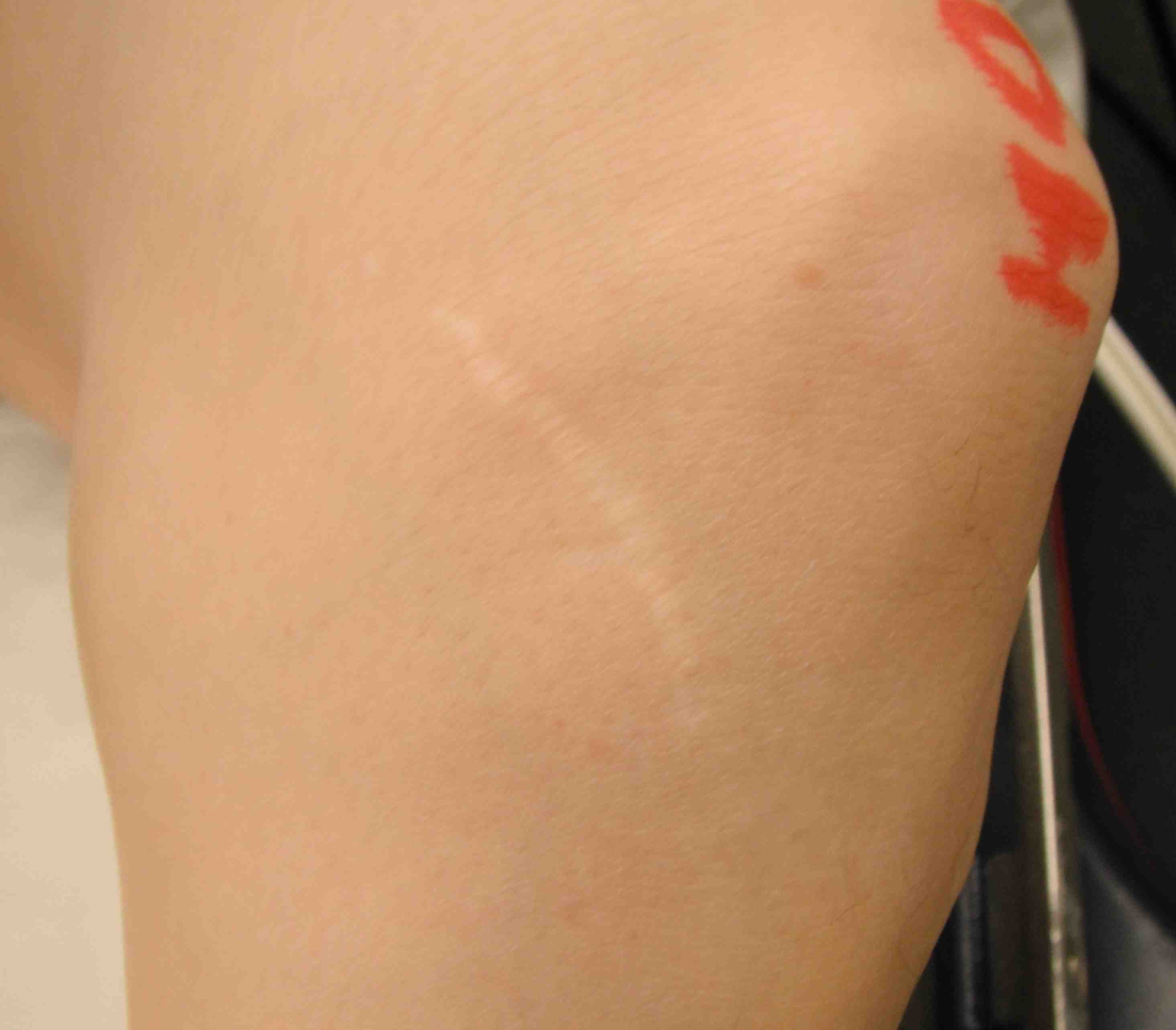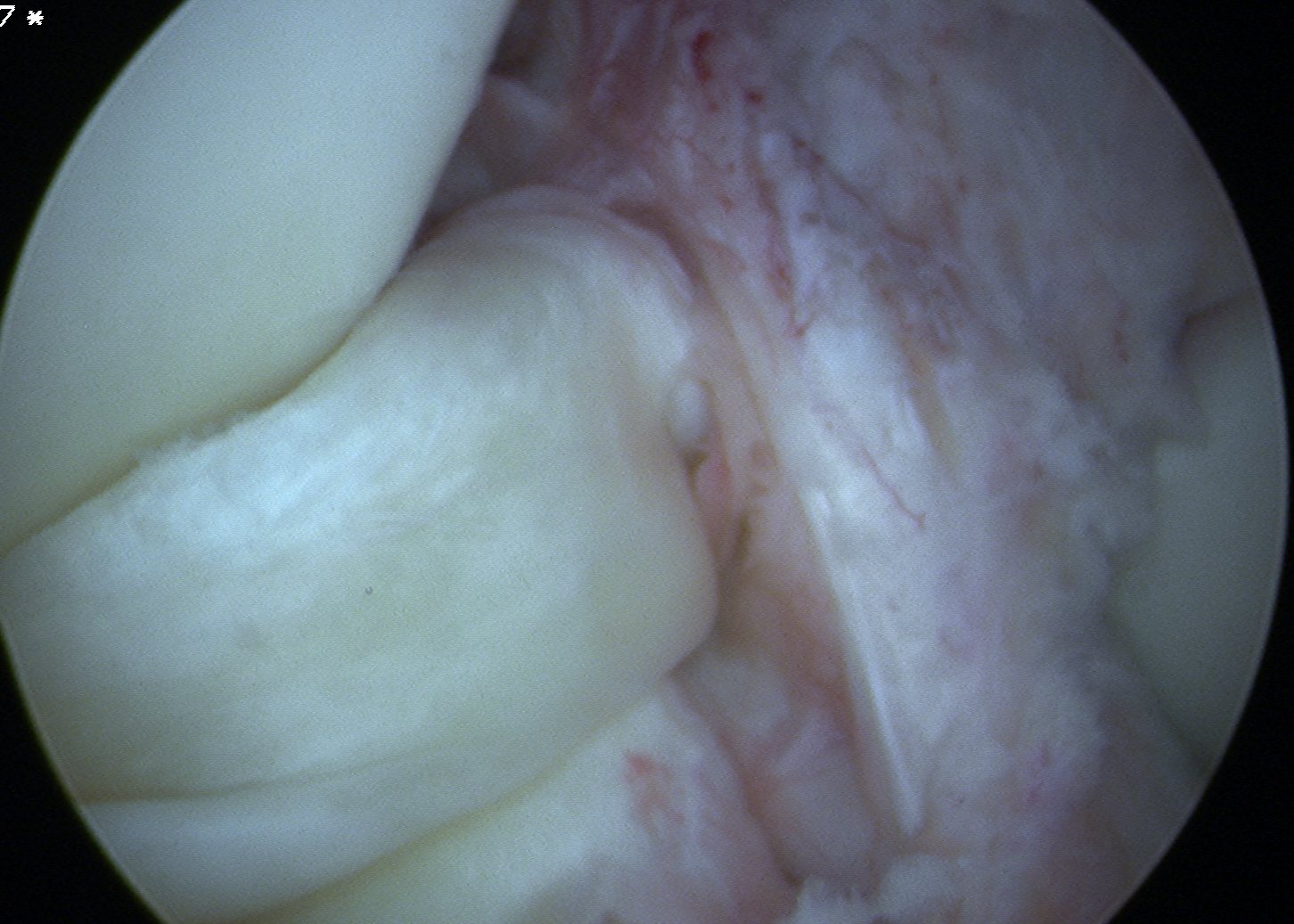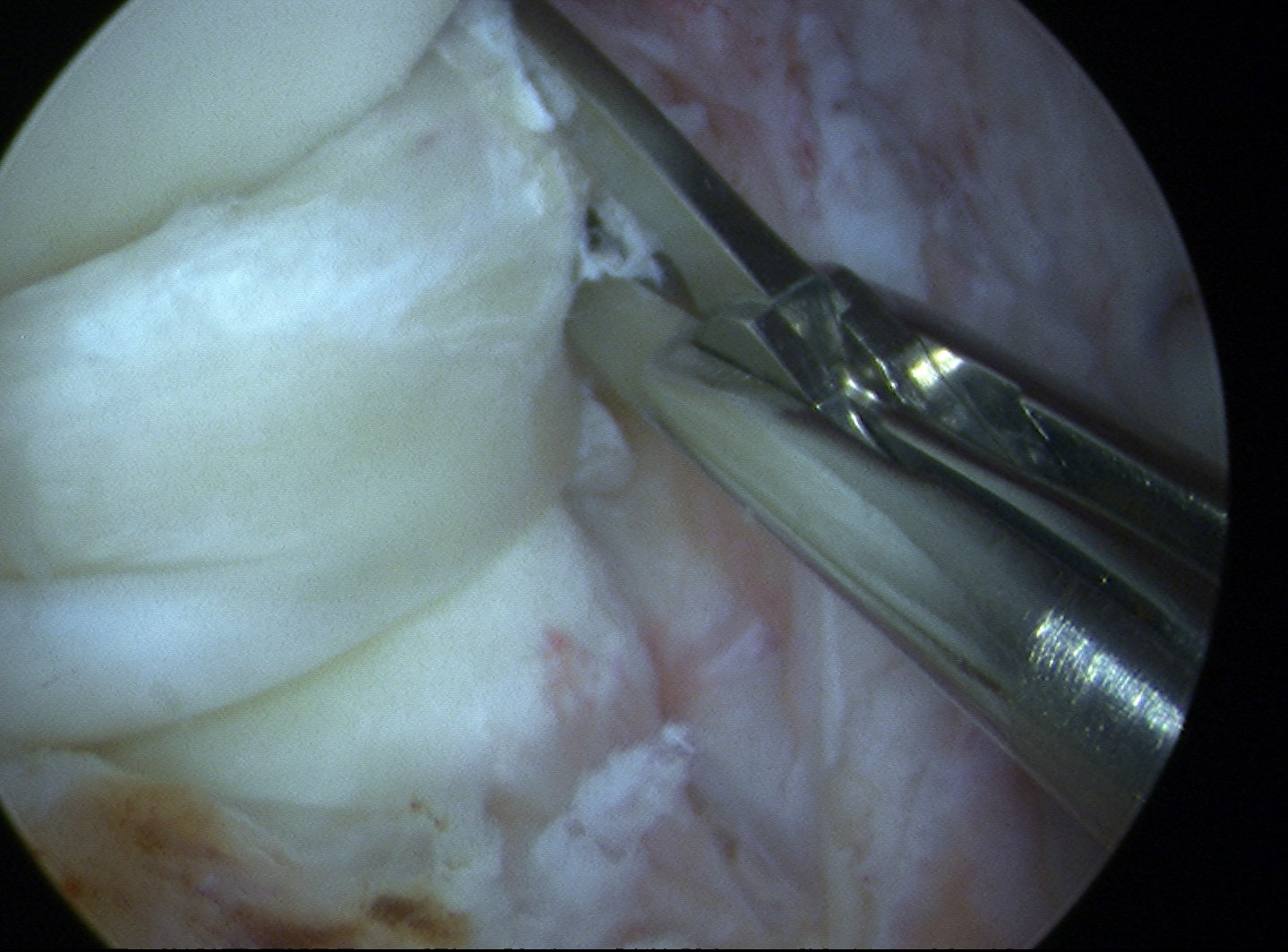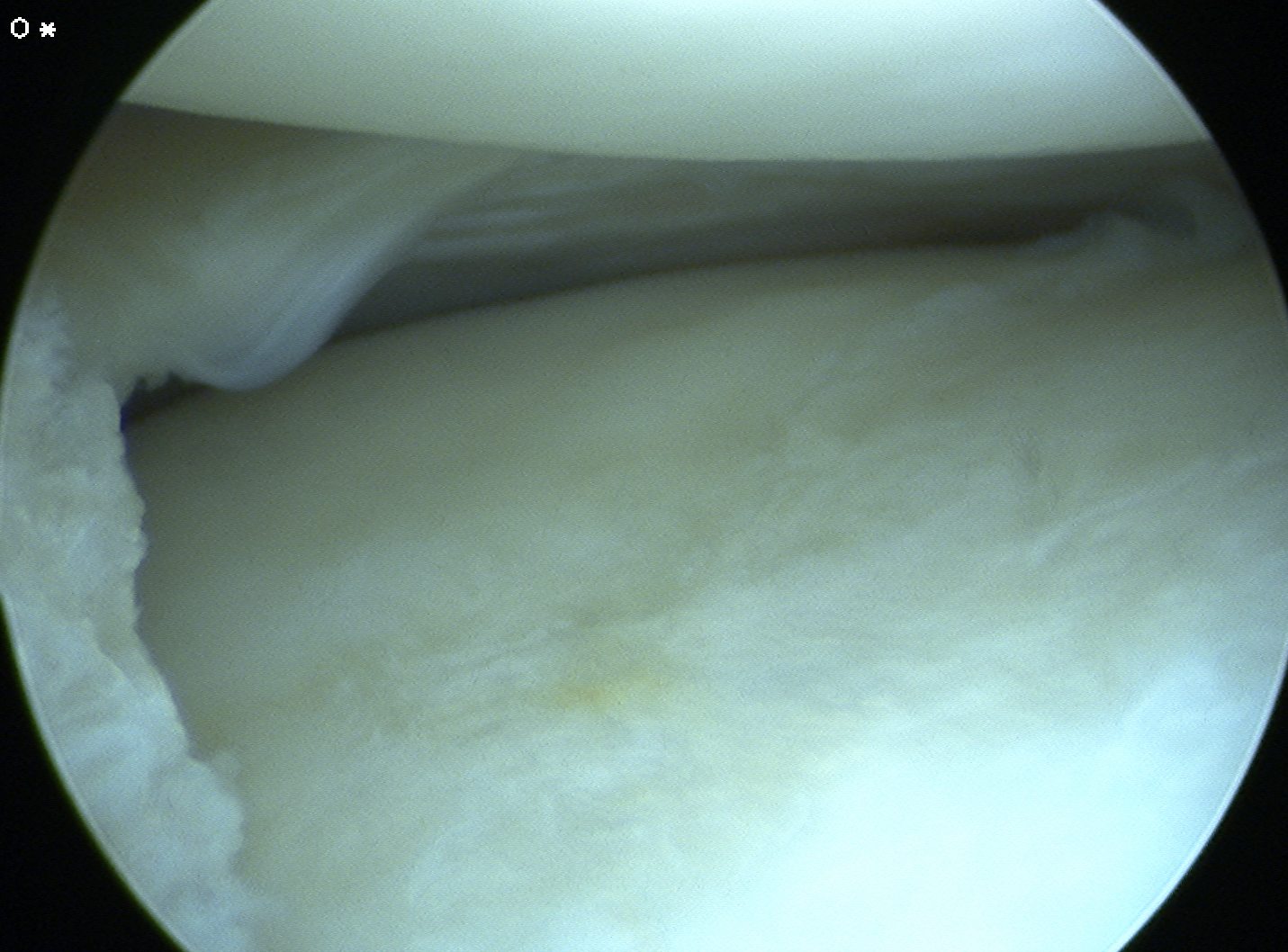Background
Meniscectomy
- resect 30%
- increases contact pressures 3.5 x
- shock absorbing capacity reduced to 20% normal
Results of partial & total meniscectomy are very poor in children
- meniscectomy in children is a last resort
- repair amenable tears
- treat others non-operatively
- only real indication for meniscectomy is locked knee not amenable to repair
Partial better than total
- less OA and less instability
- excision of unstable or loose meniscus with maximum preservation
Types
1. Partial Meniscectomy
- excision unstable fragments that can be pulled into joint
- stable rim / menisco-capsular junction preserved
- smooth rim, but don't need perfectly smooth as remodels
2. Sub-total Meniscectomy
- excision of portion of rim usually posterior horn
3. Total Meniscectomy
- required if completely detached and unrepairable
Results Meniscectomy
Total meniscectomy
40% OA at 15 years
- compared with 6% in normal knee

Partial Meniscectomy
1. No chondral damage at arthroscopy
- 95% good results
Schimmer Arthroscopy 1998
- deterioration over time for partial meniscectomy
- 90% good or excellent at 4 years
- 80% good or excellent at 14 years
2. Chondral damage at arthroscopy
- if obvious articular damage initially good or excellent 60% at 12 years
- if grade III or IV good or excellent 10%
Technique Excision Bucket Handle Tear
Indication
- long standing
- irreparable
Technique
1. 98% detachment posterior horn
- scissors / punch
2. Complete detachment anterior horn
- can use arthroscopic knife for this portion
- insert through anteromedial portal and cut down
3. Grasp meniscus firmly with grasper
- roll meniscus several times then twist
- break flimsy posterior attachment
4. Remove meniscus
- may need to enlarge anteromedial portal
5. Smooth remaining meniscus with shaver



